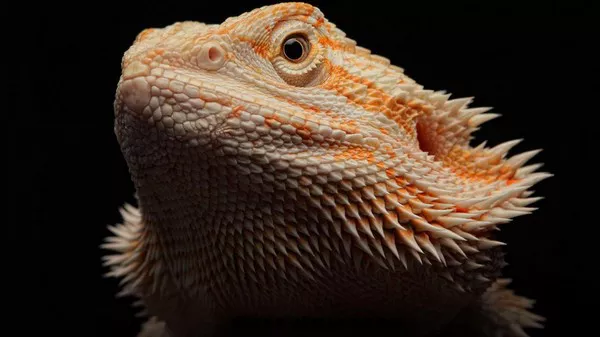Bearded dragons are a popular choice among reptile enthusiasts due to their docile nature, unique appearance, and relative ease of care. However, caring for a newborn bearded dragon requires special attention and consideration. One crucial aspect of caring for a baby bearded dragon is ensuring they receive proper nutrition. Today, we will discuss what newborn bearded dragons eat and provide some tips for feeding these young reptiles.
What Do Newborn Bearded Dragons Eat?
Newborn bearded dragons have specific nutritional requirements that must be met for healthy growth and development. In the wild, baby bearded dragons feed on insects, such as crickets, mealworms, and waxworms. In captivity, a diet of live insects should also be the primary source of nutrition for newborn bearded dragons. Additionally, it is essential to provide a variety of feeder insects to ensure a well-rounded diet and to prevent nutritional deficiencies.
It is recommended to feed baby bearded dragons several times a day, with a focus on providing a consistent supply of small insects. Young bearded dragons may have difficulty hunting larger prey or consuming tough insects, such as adult crickets. As such, smaller insects, such as pinhead crickets or fruit flies, are ideal for young bearded dragons. As the baby bearded dragon grows, the size of the feeder insects can gradually increase.
In addition to live insects, it is also recommended to offer a variety of fresh vegetables and fruits. This can include leafy greens, such as kale and collard greens, as well as squash, carrots, and other vegetables. These should be chopped into small, bite-sized pieces and offered as a supplement to the insect diet. It is important to note that while fruits and vegetables are beneficial, they should not make up the majority of a baby bearded dragon’s diet.
Tips for Feeding Newborn Bearded Dragons
Feeding newborn bearded dragons requires some special attention and consideration. Here are some tips to ensure that your young bearded dragon receives the proper nutrition:
- Choose the Right Feeder Insects:
As mentioned earlier, baby bearded dragons require small, easy-to-digest insects. Pinhead crickets, small mealworms, and fruit flies are ideal options for young bearded dragons. It is also recommended to dust the insects with a calcium and vitamin D3 supplement to ensure proper bone growth and development.
- Provide Variety:
A varied diet is essential for a baby bearded dragon’s health. Providing a variety of feeder insects, as well as fresh vegetables and fruits, ensures that the young dragon receives a well-rounded diet.
- Monitor Feeding Habits:
It is essential to monitor a baby bearded dragon’s feeding habits to ensure they are eating enough. Overfeeding or underfeeding can lead to health issues, so it is important to offer appropriate amounts of food and monitor the bearded dragon’s weight and overall health.
- Cleanliness is Key:
Baby bearded dragons can be messy eaters, so it is important to keep their feeding area clean to prevent the growth of harmful bacteria. Clean any uneaten insects or vegetables promptly and disinfect the feeding area regularly.
- Provide Access to Water:
Baby bearded dragons also require access to clean, fresh water. A shallow dish of water should be provided, and it is recommended to change the water daily to ensure cleanliness.
In Conclusion
Proper nutrition is essential for the growth and development of a newborn bearded dragon. A diet of live insects, supplemented with fresh vegetables and fruits, is crucial for providing the necessary nutrients. By following the tips outlined in this article, you can ensure that your young bearded dragon receives the proper nutrition to grow into a healthy adult. As always, consult with a reptile veterinarian for any specific feeding recommendations or concerns.
Recommended reading:


























